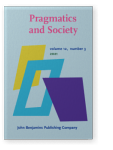Vol. 12:3 (2021) ► pp.488–504
Hedged Turkish complaints and requests in the Problem-Solution text pattern
This study investigates to what extent Turkish formal complaint letters followed the ‘Problem-Solution Pattern’ (Hoey 1983), and on how the writers expressed their wishes when they explained their problem and asked the authorities to amend a mistake. The study is based on a corpus of 134 Turkish complaint letters. It draws upon Flowerdew’s (2008, 2012) approach to the problem-solution pattern and the role of clause relations in this text pattern.
Results showed that age-old Turkish rhetorical norms led writers’ choice of lexico-grammatical patterns in reflecting politeness in order to maintain their own and the recipients’ faces. The speech acts (complaint and request) in the ‘Problem and Solution’ parts below were hedged and impersonalized. The Turkish traditional rhetorical formula that was used in the request does not explicitly ask the reader to do something; in this way, the writers attempt to protect both their own face and that of the reader.
Article outline
- 1.Introduction
- 2.A request and a complaint forming a speech act set
- 2.1Hedges
- 3.The study
- 3.1Data analysis
- 3.2Results of the analysis
- 3.2.1The situation part is where writers typically introduce themselves
- 3.2.2The use of passive and impersonalized forms in the Problem part
- 3.2.3Request in the Solution part
- 4.Discussion and conclusion
- Acknowledgements
- Note
-
References
